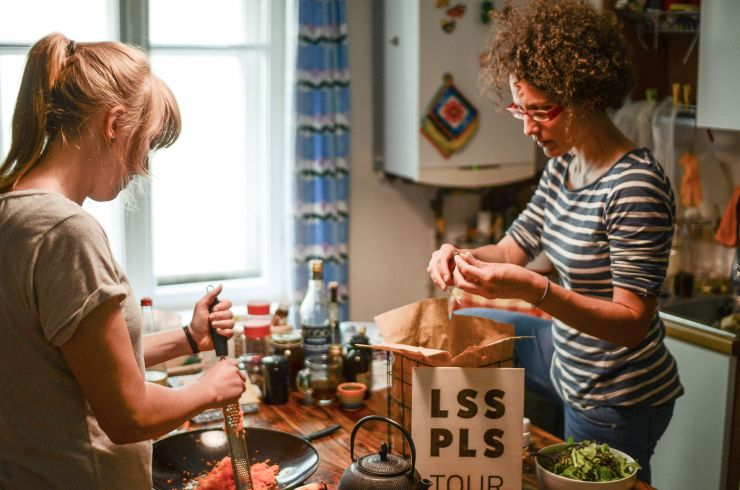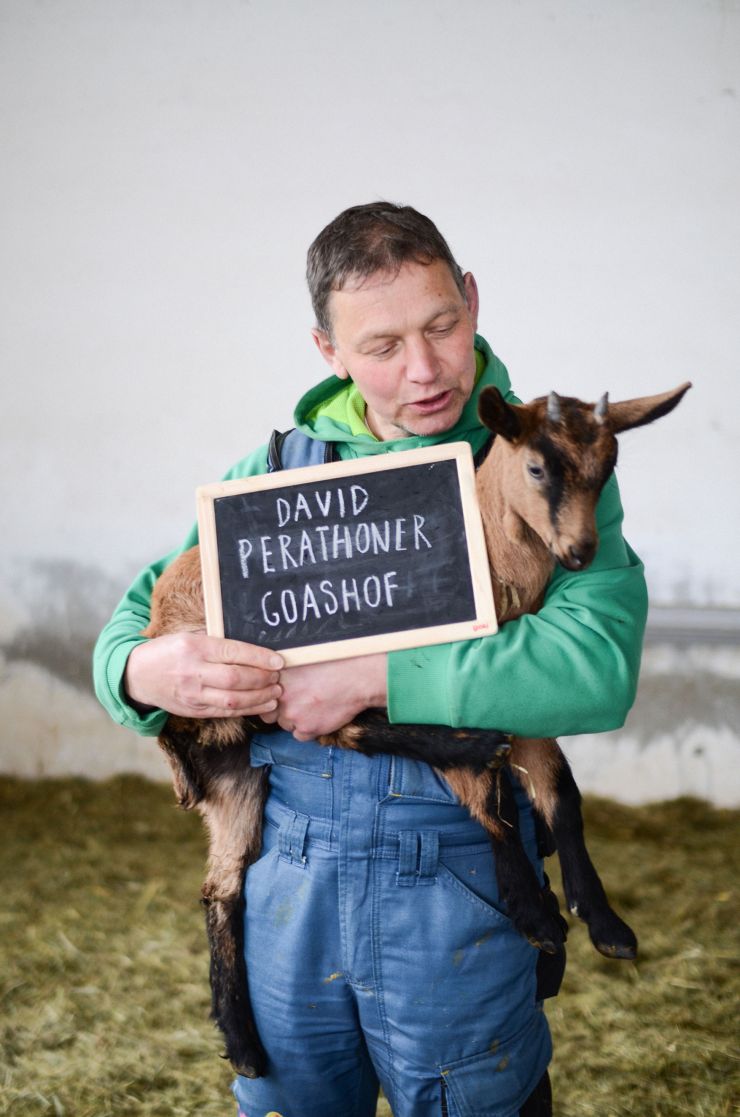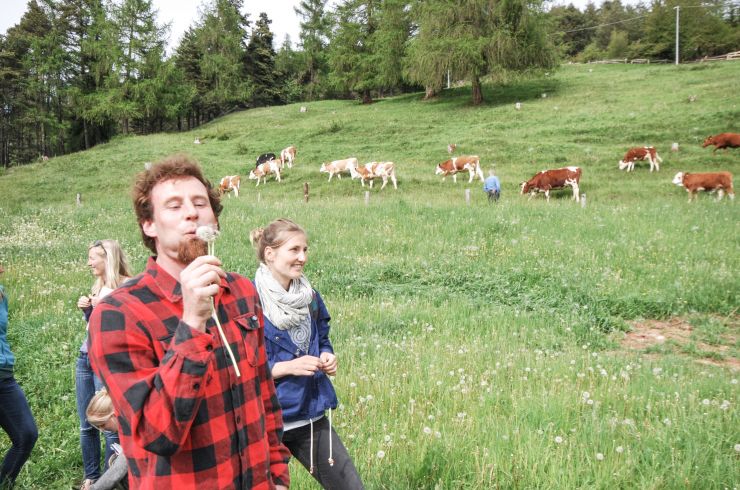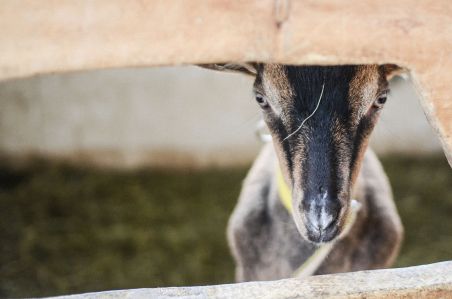A project by Lena Rieger and Clara Hüsch
Less Please
How to live a good life with less?
details
A project within the Master in Eco-social Design, inspired by the annual theme ESSEN/ALIMENTARE/FOOD (Project 1 - SS 2015/16).
Supervisors
- Kris Krois, Design for Communication & Interaction
- Amin Al Hazwani, Web & Media Design
- Matteo Moretti, Interface Design
- Dr. Daniela Gottschlich, Political Ecology
Partners
- Bernhard Holter
- David Perathoner
- Maria Lobis & Stefan Zanotti
- Gaia Palmisano & Michael Schlauch
- Elisa Nicoli
- Joshua Petelka
- Paola Claut & Pietro Vezzani
- Magdalena & Friedl Pobitzer
- Angelika Ennemoser & Maurizio Emer
Links
The project

Concept
By showing authentic, versatile role models, the project wants to demonstrate, that there exists a multitude of alternatives for reduced lifestyles. It aims to inspire, encourage and show that a change can happen. Everyone can start changing something, even today.
Call for Experts
To find those “sufficient role models” different channels were used: The offline channel, by using local media such as Radio (RAI Südtirol) and the local press. The online channel, by using the university network (newsletter, website) a Facebook page and a website.
Creating these own channels and using existing ones was necessary to spread the idea and gather participants, as well as an audience for the project.
Tour to sufficient lifestyles
A trip of nine days was organized based on the responses of the call. Experiencing and actively taking part in different lifestyles of the participants was the approach to collect information. Each day, the team experienced everyday life of a participant and captured it by photography, interviews and simply through experiencing.

Lessons learned
The focus of the project was to get hands-on tips for the audience. It turned out, though, that the life philosophies of the participants were equally essential for a transformation to sufficient living. By that, personal attitudes and ideas of the people became also more central for the project.
„Nowadays I still work a lot. But I feel more alive.”
David Perathoner
„Generally, self production does not take so much extra time, but in the beginning it needs a bit of extra thinking.”
Elisa Nicoli
„It’s not only about saving stuff from the garbage. We want to bring these objects back into the circuit.”
Pietro Vezzani
„I have the courage to say no and cancel an appointment, if it is too much.”
Bernhard Holter
Output

9 Days, 9 Stories – A Web Documentary
The data was collected through participatory observation with interviews and photographic documentation. The combination of these methods allowed depicting one day in the life of each participant. The web documentary re-narrates the tour for the audience in an authentic way: Through photos, short video stills, audios, a narration text and quotes of the participants the story becomes alive. Each visit is communicated as a closed, unique experience and as part of the whole story in form of an article. Each article is followed by a brief description of the participant. An additional sub page with a collection of all participants stresses the variety and enables an overview of the participants. Also, each article ends with practical advice. These “calls-to-action” can easily be implemented in everyday life. A link leads to the collection of all tips; additionally the tips are also printed on cards as a give-away, in order to market the web-documentary. These calls-to-action are not revolutionary, but they should inspire people to start thinking about sufficiency. For example, growing tomatoes on your own balcony will not change your ecological footprint drastically, but it will change ways of thinking about agriculture and food, and this is the aim of the project.
Communicating THE LESS

How can this message be communicated to an interested crowd? Due to a strong communication strategy and the use of various channels, online/offline, regional/local, mouth-to-mouth, it was possible to form a versatile network: On the one hand, Less Please created own open channels such as a Facebook page and a network based on emails and phone calls. On the other hand, the idea was spread in existing regional channels, such as Radio (RAI), the Zebra Magazine and the institutional network of the University. To market and communicate the output web documentary, the existing Facebook Community (239 Follower/17.06.2016), Academia (Student Magazine), QuiBolzano (Local Newspaper) and barfuss.it (Online Magazine) act as multipliers. The network of interested people, participants of the tour, multipliers and media will remain after the project. Therefore, the project might develop further, or the network could be used as a platform for other sustainable projects.